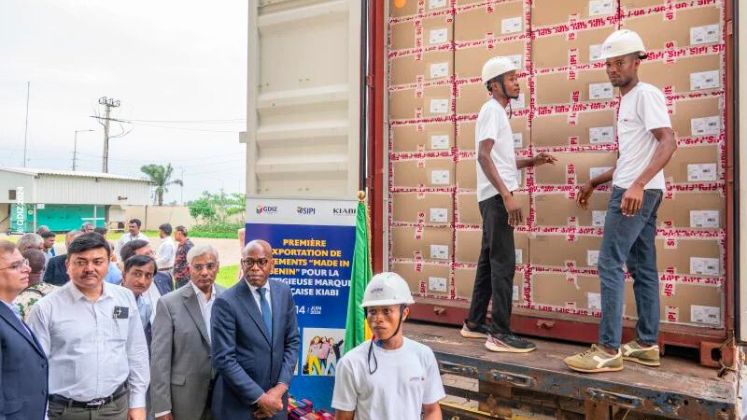
The first cargo of clothing marked ‘Made in Benin’ was shipped by the Glo-Djigbé Industrial Zone (GDIZ) in Benin to Europe for the French fashion retailer Kiabi, demonstrating the nation’s rise to prominence in the world textile market.
The initial shipment, comprising 80,000 children’s leggings, has been ready for Kiabi, which has around 563 stores spanning France, Africa, Spain, Italy, the Middle East, and Overseas Departments and Regions (DROM).
This marks the commencement of a collaboration between SIPI-Bénin and Kiabi, with a primary order for 2 million clothing pieces in 2024, rising to 4 million in 2025. This partnership follows two years of debate and negotiations; highlighting confidence in Benin’s manufacturing capabilities and its ability to meet global market standards.
Létondji Beheton, MD of SIPI-Bénin S.A, remarked, “We share pride in this initial export of children’s leggings to Kiabi, which highlights their dedication to supporting the Benin’s textile industry on the international stage.”
“Presently, Kiabi is increasingly prioritizing on partnerships in Africa for garment production and plans to enlarge its retail footprint across the continent. Benin’s vibrant workforce and premium standards position it perfectly to capitalize on new opportunities presented by Kiabi.”
Penagos Juan, CEO of Kiabi’s sourcing division, commended the partnership, noted, “This proposal rightly aligns with with Kiabi’s strategy of localising production near its retail outlets. In Africa, Kiabi currently operates many stores and now, through the Glo-Djigbé Industrial Zone (GDIZ), we are manufacturing Kiabi garments locally.”
Juan also stated the company’s plan to manufacture thirty million pieces in Africa, highlighting Arise, a company providing sustainability initiatives in Africa, as the ideal partner to achieve this goal through sustainability integration and the select use of 100 per cent Made in Africa cotton.
Kiabi currently stands besides global brands like The Children’s Place (TCP) and US Polo Assn, with whom clothing delivery contracts have already been secured, further strengthening GDIZ’s role as a vital hub for textile production in Africa.






